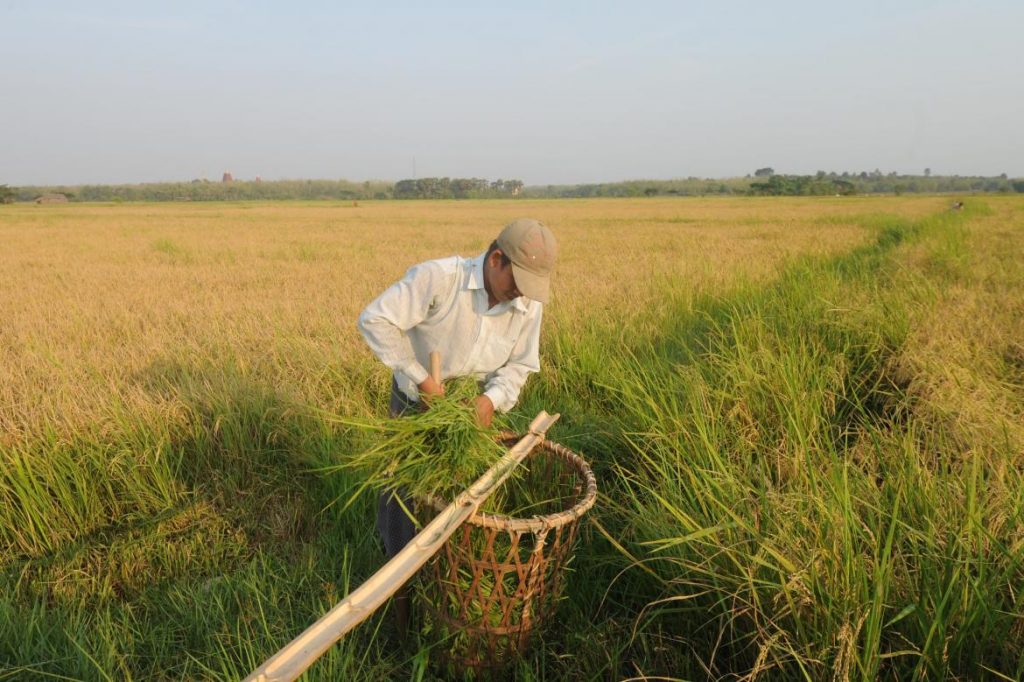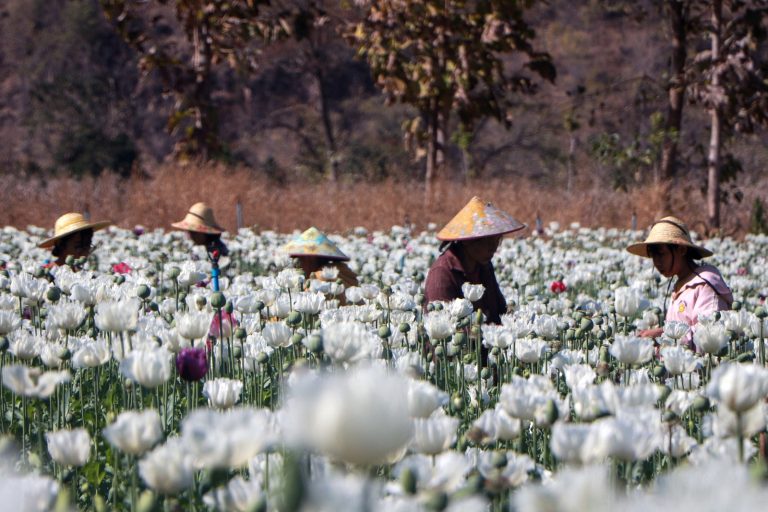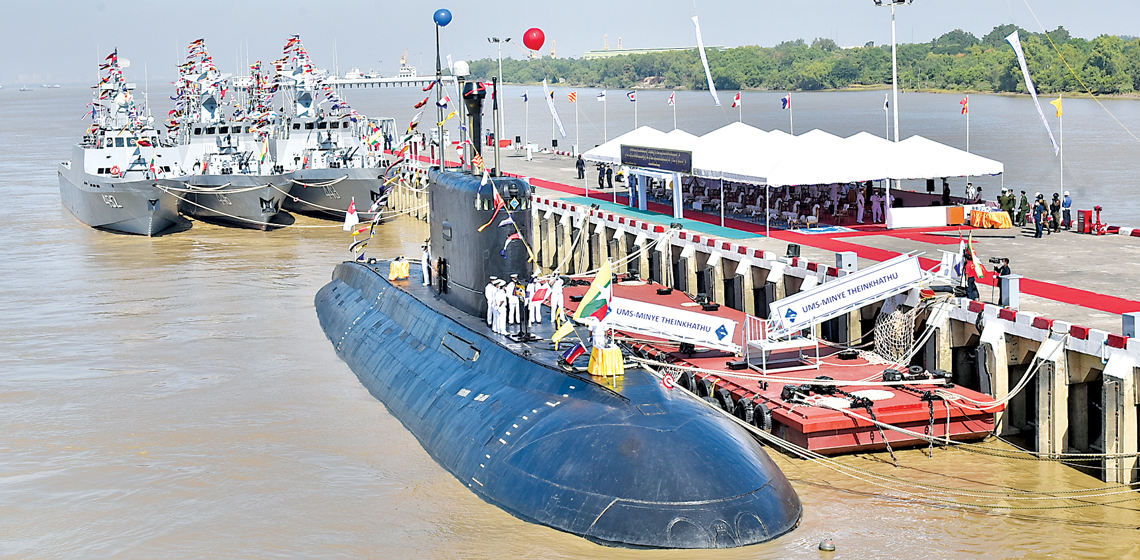By OLIVER SLOW | FRONTIER
YANGON — The government should focus on growing international markets for Myanmar’s agricultural products in order to boost the sector, a senior economic adviser said last week.
U Lay Nyunt, a member of the National League for Democracy’s Central Economic Committee, highlighted recent challenges in the country’s beans and pulses industry after India introduced import quotas in August.
India is the major market for Myanmar’s beans and pulses, and after the announcement the local price of pigeon pea and black gram fell dramatically. An estimated 400,000 tonnes of beans that were meant for India were stuck in warehouses.
“In the past, we have been too reliant on just a few markets. It is important that we diversify,” said Lay Nyunt, who was speaking at an event in Yangon on November 9 that was hosted by the American Chamber of Commerce Myanmar.
Support more independent journalism like this. Sign up to be a Frontier member.
“There are a lot of opportunities in the agricultural sector, but the agricultural products have very few markets. We would like the private sector to think about improving the access to markets.”
The event was billed as an opportunity for the business community to meet the economic team from the NLD, which has been criticised for not effectively communicating its plans for reforming the country’s economy since taking office.
In July 2016, the NLD unveiled a 12-point economic policy, which prioritised promoting “national reconciliation”, the equal development of all states and regions, and developing a financial system that would encourage long-term development. However, the policy was criticised for being light on detail and almost 20 months after the NLD took office there is widespread frustration at the sluggish pace of economic reform under the civilian-led government.
In its latest Myanmar Economic Monitor report, the World Bank downgraded its GDP growth forecast for 2017-18 to 6.4 percent from 6.9 percent, and warned that recent violence in Rakhine State has increased “downside risks”.
It said many investors were still waiting for greater policy clarity before committing to projects in Myanmar.
“Investor interest remains strong, though the lag between investment commitments and implementation has started to grow,” said the report.
Lay Nyunt said that the government was taking measures to boost the economy, particularly in rural areas. It had established committees tasked with investigating “land grab” claims and put forward plans to reform land tax in order to boost state revenues.
U Soe Win said that the CEC is aware of the frustrations, and challenges, related to the economy, adding that one of the major focuses for the government is on financial sector reform.
“We are working closely with the Central Bank on financial reform,” Soe Win told the audience, a mix of Myanmar and foreign businesspeople. “Without these reforms, it will be difficult for investments to go through. We are encouraging ministers to make changes to create a more investor-friendly environment, and to push through the red tape.”
Committee member U Ye Min Oo, a former managing director of AGD Bank, admitted that progress on economic reform had been slower than many anticipated before the NLD took office, but said part of the reason was because many outdated laws are still on the books.
“Some people said to us we should focus on development, but we decided that rule of law is important for the country’s development,” he said.
Ye Min Oo also called on the international community to show patience when waiting for the government to overcome the challenges faced.
“We are trying to go the democratic way, so please support the civilian government. If they fail, then democracy will fail. We are trying to solve the problems, so please support the civilian government. That is the message I would like to send to foreign investors,” he said.
Ye Min Oo also sought to clarify reports that the NLD economic committee was established by President U Htin Kyaw. Because of the 2008 constitution it cannot get involved in government activities, he said, but it does have a closer relationship with the parliament.
“We can pass on information to the parliament, and ask questions such as: what should change? What direction should we go in? And what new laws should be introduced? We can propose ideas to the MPs, acting as a check and balance,” he said.







